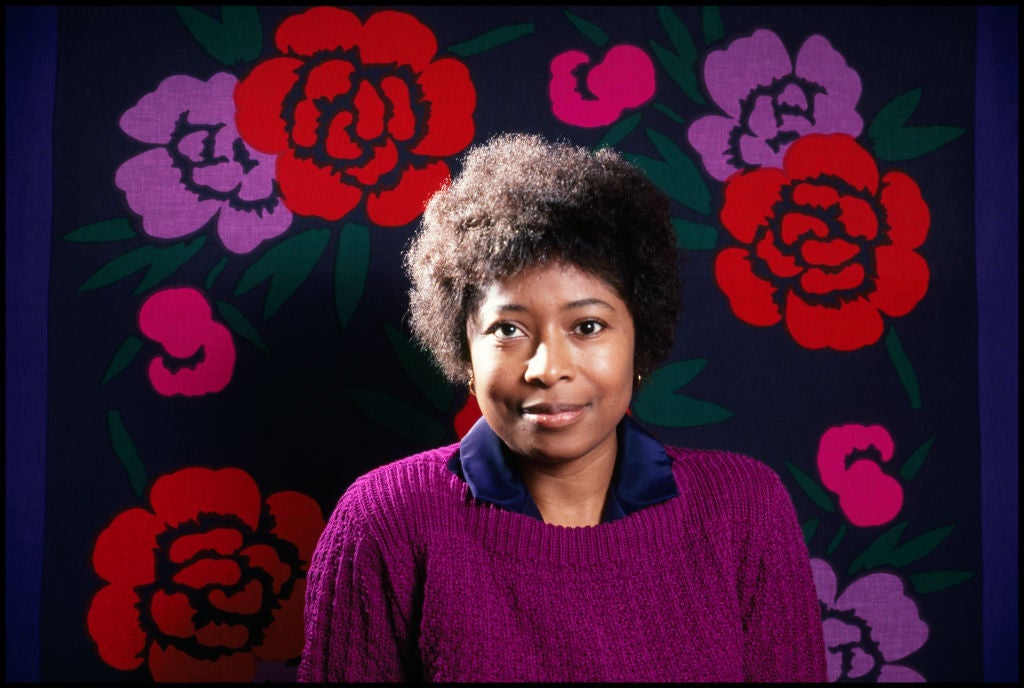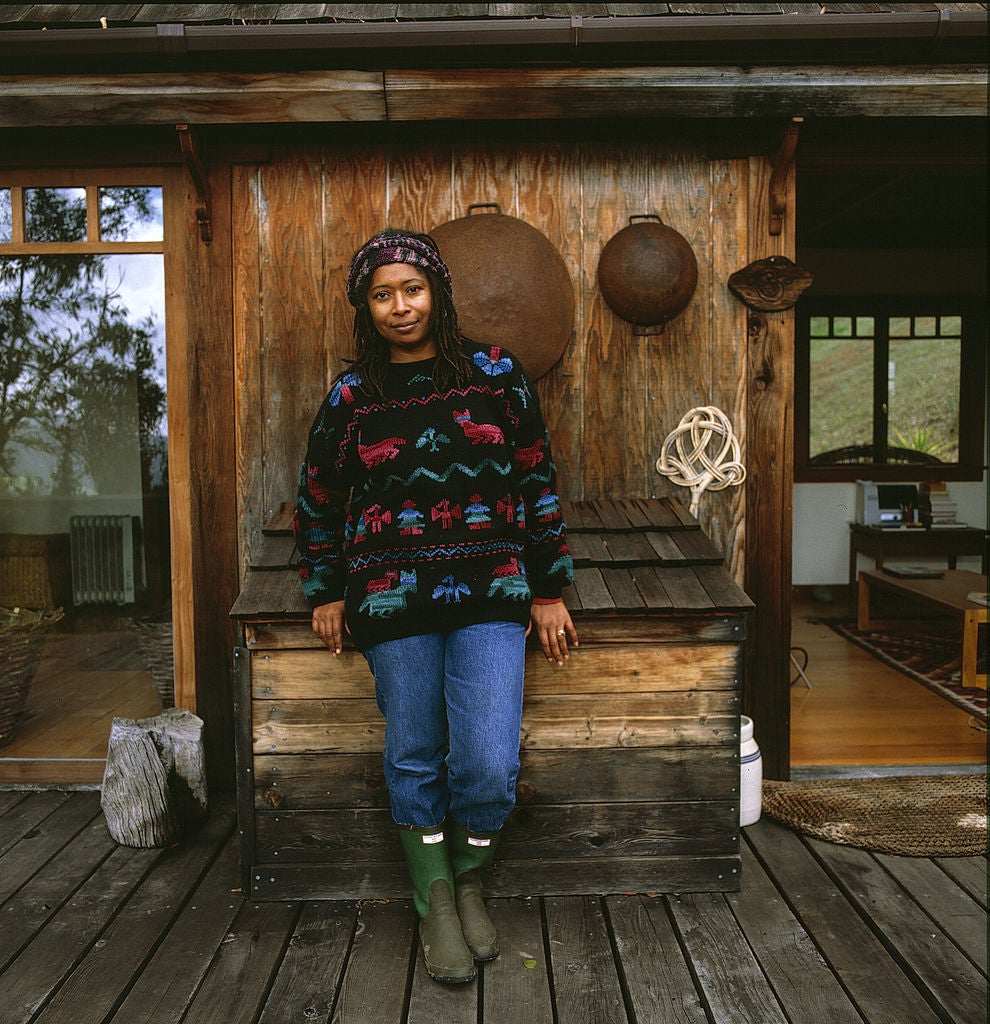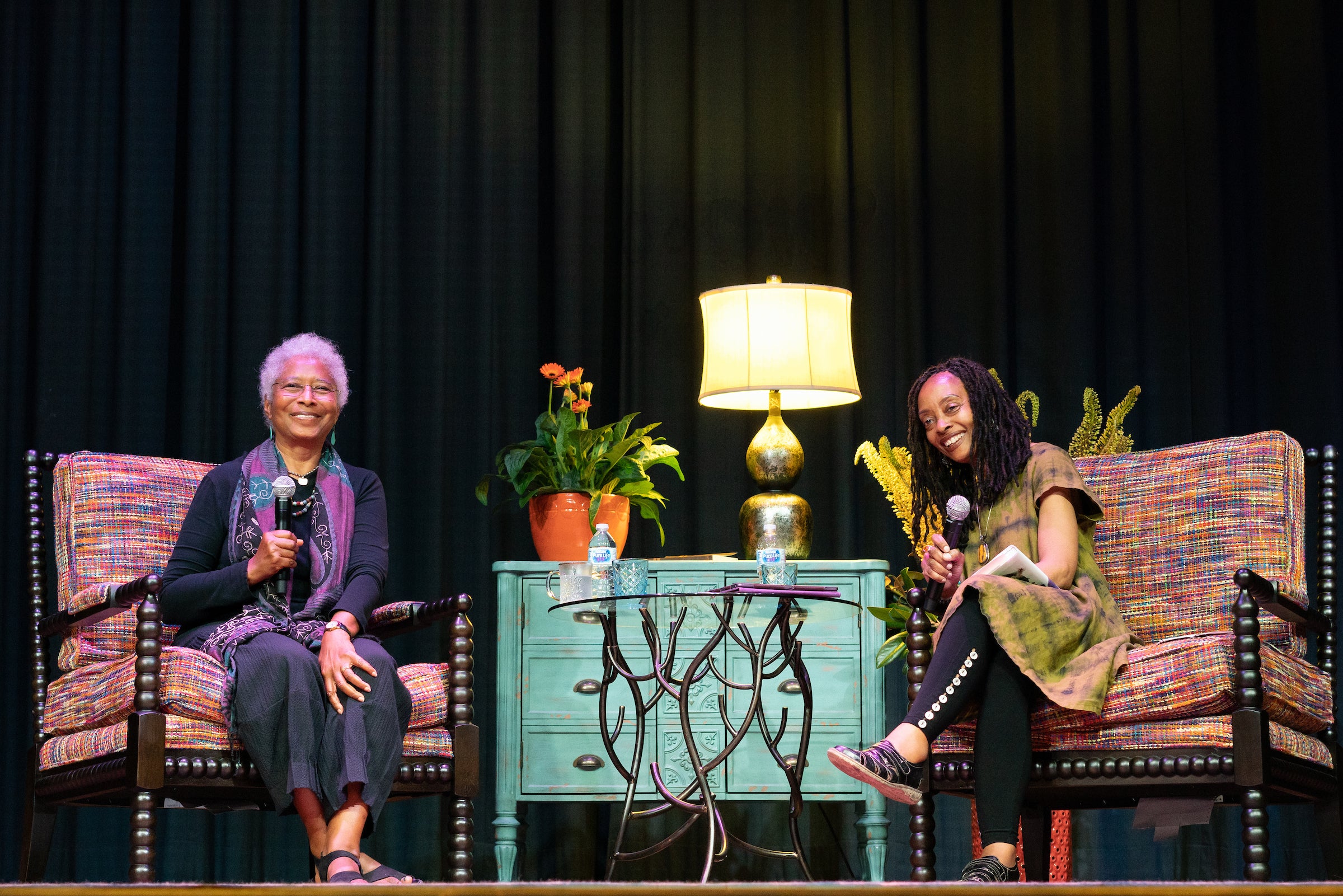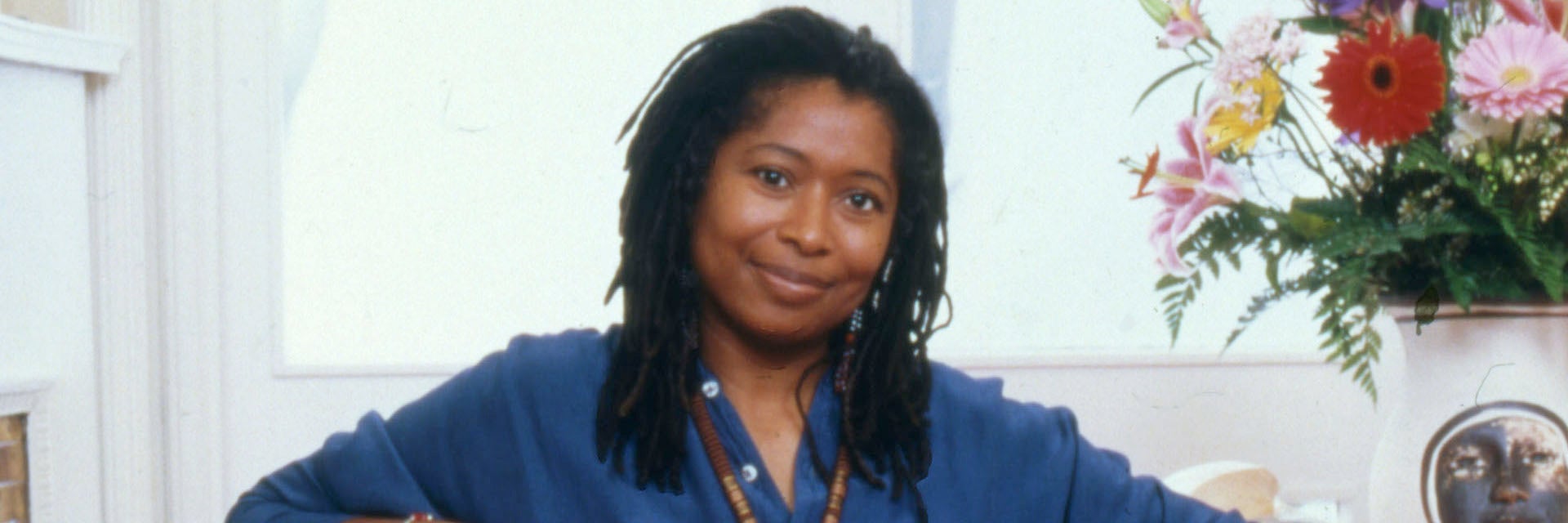When word spread of a summer celebration honoring Alice Walker’s seventy-fifth year—in her hometown of Eatonton, Georgia, no less!—the occasion felt requisite, worthy of pilgrimage. The opportunity to stand on the same red clay that held up the Pulitzer Prize winner in her youth seemed rare and remarkable. Accordingly, hundreds of Walker devotees heeded the call last Saturday to give thanks to the living legend in person and place flowers at her feet.
Although Walker left segregated Eatonton in 1961, both town and person have had an indelible mark on the other. So much of the South traverses Walker’s life and work, from her deep reverence of nature to her writings in works such as (but not limited to) Revolutionary Petunias, Meridian and The Color Purple.

During the celebration, love notes to Walker could be found all over the small town: a boutique’s all-purple window display; the once-segregated Pex Theater (where Walker brought her mother to see The Color Purple one month before the film’s general release) boasts the original movie poster; a handwritten message “‘Happy 75th Alice Walker. God Bless You. We love you!!!'” is scrawled on a storefront window.
“Coming back…this is actually the first time I’ve been to Eatonon,” said Walker, who has homes in Mexico and Northern California. “I lived right outside the town, but in a way this is the first time I’ve been. I didn’t know this place [the Plaza Arts Center] existed, for instance. I didn’t know there was a library. I’d never been. I’ve still never been. So this is a homecoming to a place that is now feeling like home.”

Perhaps the day’s most heartfelt moments occurred during the musical and literary tribute, where writers of note were asked to read the works by Walker which most influenced them. Novelist Tayari Jones read from Meridian; poet Kamilah Aisha Moon read the poem “How Poems Are Made.” Walker’s daughter, Rebecca, recited several works including classics “Eagle Rock,” “Expect Nothing” and “Now That The Book Is Finished”—a poem Walker wrote about Rebecca as a child. Walker’s 14-year-old grandson, Tenzin, performed a piece he composed entitled “Sun and Steam.”
“I think the thing that’s most profound about Alice Walker is she didn’t wait to die to become ancestral,” said Clark Atlanta professor Daniel Black before reading the short story “Flowers.”

The crown jewel of the event was the conversation between Walker and professor/author Valerie Boyd, who not only co-chaired Alice Walker 75, but also collaborated with Walker on her upcoming book, Gathering Blossoms Under Fire: The Journals of Alice Walker, which debuts fall 2020. In the talk, Walker—who read a passage from The Color Purple—likened journaling to meditation and encouraged the audience to stay hopeful. “When we get to the edge of the cliff and it’s terrible, we don’t see how we can go forward,” she said. “This is a nightmare. Our children are committing suicide, the drug situation is horrendous, the leadership is dreadful. Though all of that…what can you do? Well my feeling is that one thing you can always do if you can move even a finger, you can dance.”
And with that, Walker—author of 2010’s Hard Times Require Furious Dancing—invited attendees on stage to cut a rug with her to two of her favorite songs: “Rock Steady” by Aretha Franklin and “As” by Stevie Wonder. Thus was the glorious conclusion to an unforgettable day.
